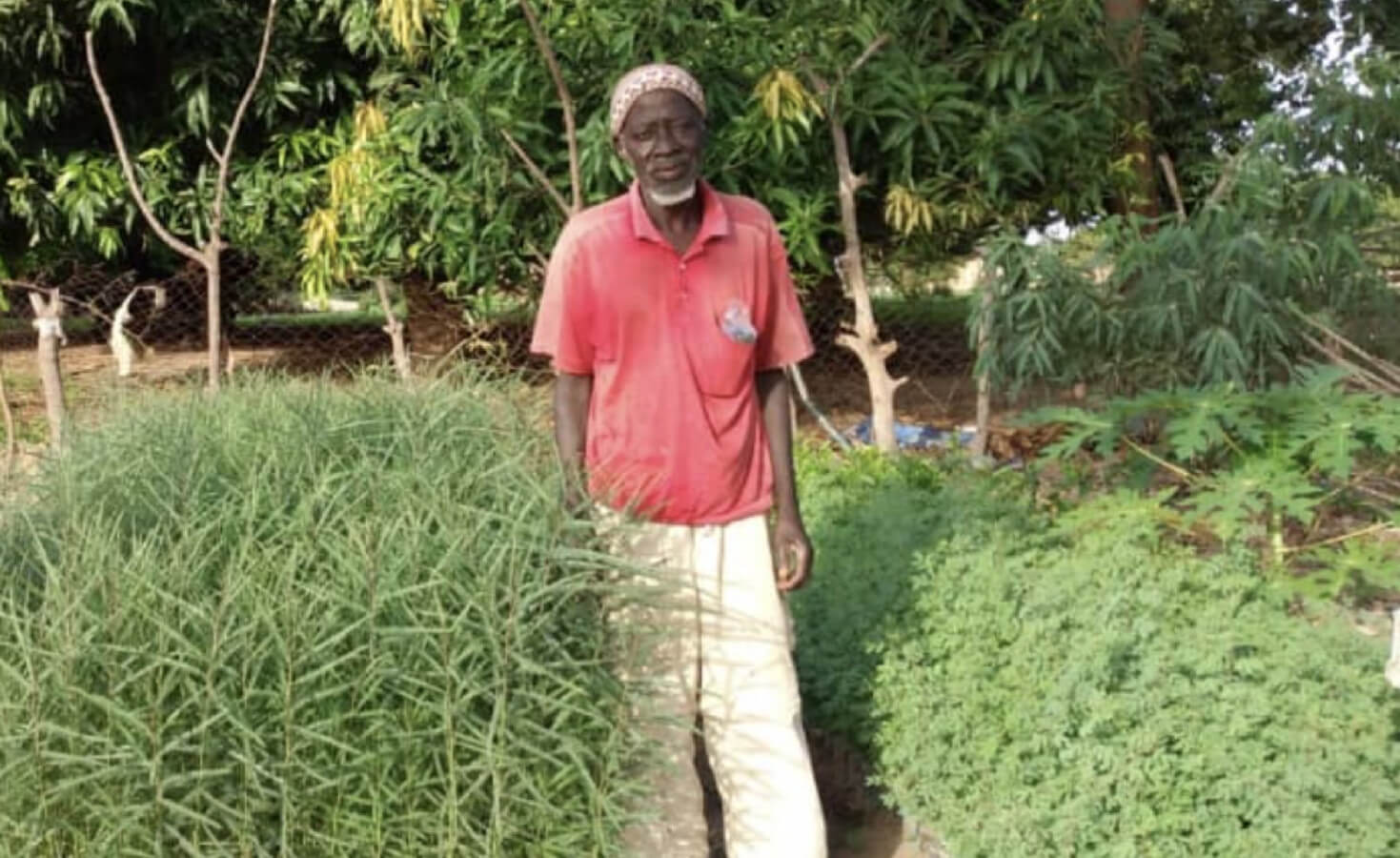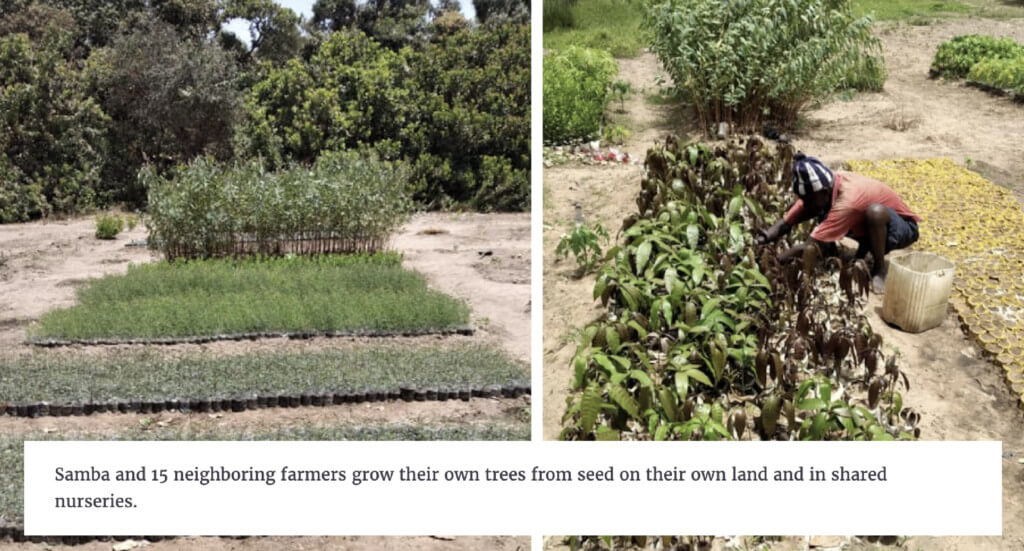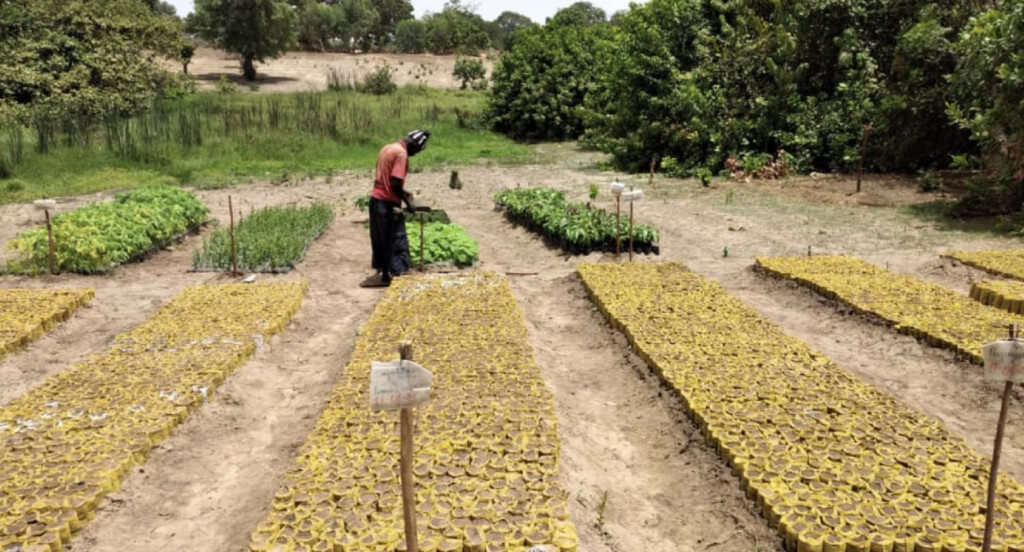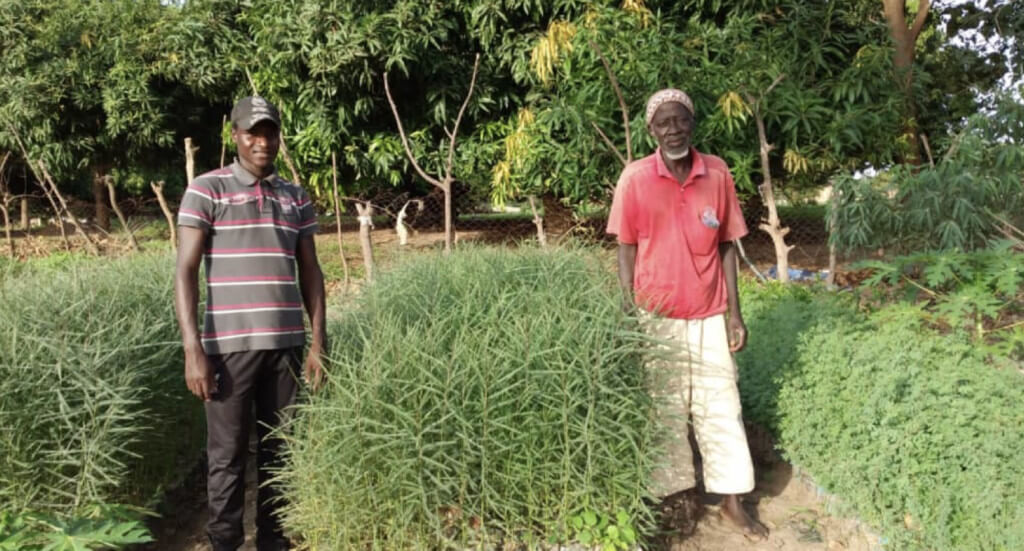Forest Garden Farmer: Samba Cissé
This blog post was originally written for and published on trees.org.

At 65 years old, Samba Cissé, is at the top of the class.
“Trees for the Future has shown me that no matter how old you are, with support you can always make it through,” he says.
Samba joined Trees for the Futures Forest Garden Training program in 2020. A farmer in Fatick, Senegal, Samba has always relied on monocrop agriculture to make a living. TREES staff have been training Samba and 15 of his neighbors in the Forest Garden Approach since they joined the program two years ago.
“The beginning was a bit difficult in this area because farmers are used to growing few crops,” says Djiby Diouf, the lead Trees for the Future technician in the area. “They don’t have a great notion of agriculture except for cashew and peanut cultivation.”
With the desert advancing across the African continent and the risk of famine looming, TREES staff like Diouf are teaching farmers to protect their land and diversify their crops, providing tens of thousands with long-term access to food and income.
“I joined TREES thanks to friends from a neighboring village who explained the program to me. This encouraged me to come and register and seek a way out of our daily poverty,” Samba recalls. “At the very beginning, I noticed that TREES was doing a lot of training on market gardening, field protection, crop diversification.”

Samba and 15 neighboring farmers grow their own trees from seed on their own land and in shared nurseries.
Today, with the knowledge they have acquired, the farmers in Samba’s project are growing more than a dozen crops in their Forest Gardens.
“Three years ago, I couldn’t even provide three meals a day for my family. With my Forest Garden nearby, my family has everything they need to prepare healthy and delicious meals!” he says. “I am one of the people in Africa who had the chance to meet the Trees for the Future team.”
Building Income Opportunities
Samba has become a seasoned nursery specialist and one of the most sought-after nursery growers in his region. With the lessons learned during his TREES training, Samba created a second stream of income for himself.
“Just by producing fruit nurseries for companies and for individuals, I earn a lot of money,” he says.
Farmers see a dramatic increase in income after establishing their Forest Gardens. Like Samba, many farmers pursue additional business opportunities that complement their Forest Garden activities. Farmers sell seedlings, honey, soap, organic pesticides, and more.

A Standout in his Group
Samba is the lead farmer of his 16-person group. He monitors group performance and supports his neighbors in learning new techniques.
“I joined the local Trees for the Future program with great enthusiasm. This enthusiasm has never left me since day one.”
His fellow farmers and the TREES staff see Samba’s enthusiasm too! In 2021 he was honored on Senegal’s National Tree Day.
“We decided to honor Samba during the National Tree Day to magnify his work and encourage the beautiful achievements of our participants,” says Fatoumata Diedhiou, Trees for the Future, Fatick Regional Coordinator.

A Lasting Legacy
The 65-year-old has found incredible success in the Forest Garden Approach. Looking to the future, he says his Forest Gardens will be his lasting legacy.
“Others may inherit houses or cattle, but my children will inherit a multitude of Forest Gardens and a knowledge that can be transmitted through the generations. I believe that they will have nothing to envy of anyone!”
Help TREES reach more farmers like Samba. Donate today.




